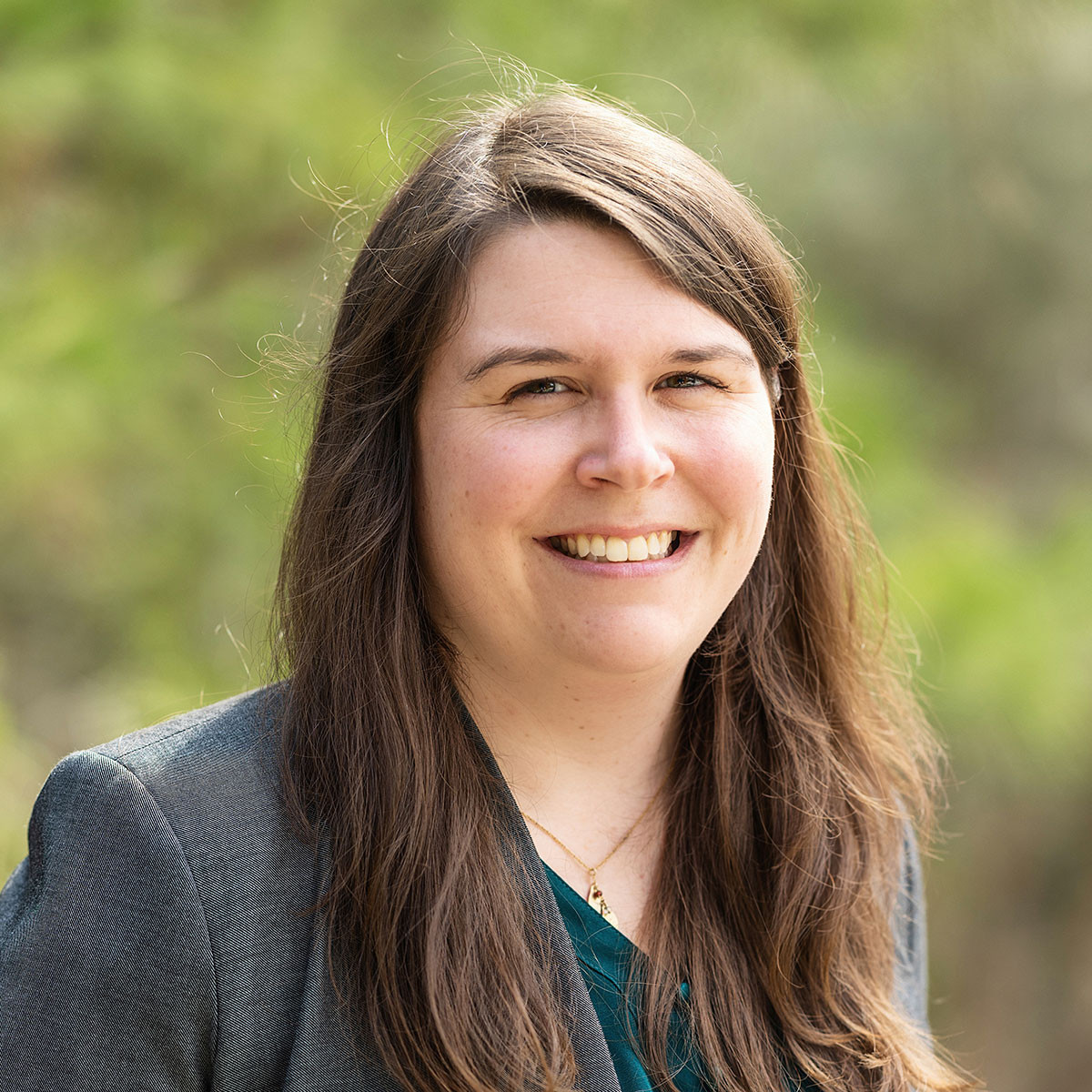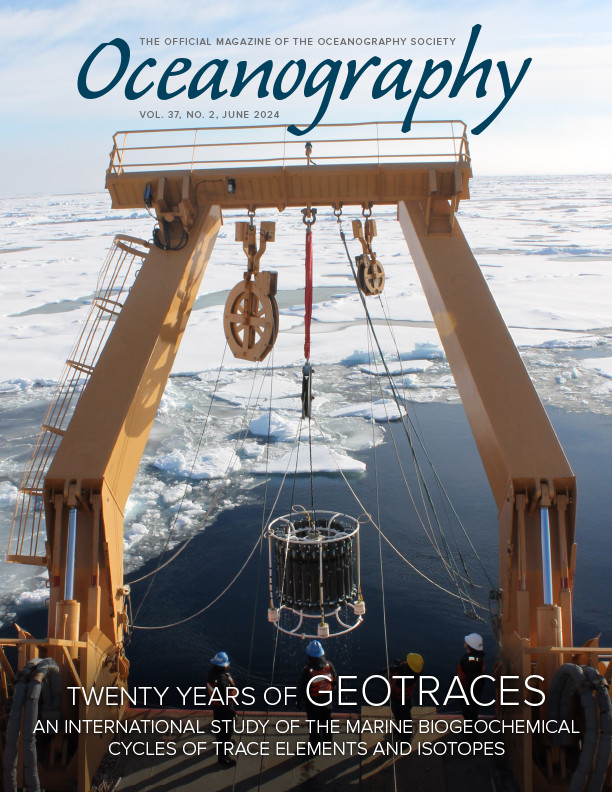Full Text
 |
MEREDITH JENNINGS, Senior Research Associate, Houston Advanced Research Center
Degree: When, where, what, and what in?
I received my PhD in marine and atmospheric chemistry from the University of Miami’s Rosenstiel School of Marine and Atmospheric Science in 2017. My research focused on how to better measure and understand the transformation of dissolved organic carbon in the ocean, which serves as one of Earth’s major carbon reservoirs. I started my PhD the semester after graduating from Hendrix College, where I received a bachelor of arts in chemistry. Ironically, I was first exposed to marine chemistry in the landlocked state of Arkansas when I grew phytoplankton at Hendrix for my undergraduate research project. We had to order boxes of seawater medium to grow the cultures!
Did you stay in academia at all, and if so, for how long?
I began contemplating my exit from academia while I was finishing my PhD. Although I loved studying the ocean and the magic of discovering or describing something new, I could not see myself continuing on this path. Like many graduate students, I struggled with imposter syndrome and anxiety when it came to conducting academic research. I didn’t enjoy formulating research questions like my colleagues did, and I found myself wanting to do something more applied and related to environmental science and society. In 2016, I took an intro to science policy course and was selected to attend the American Meteorological Society (AMS)’s Summer Policy Colloquium in Washington, DC. Through this experience, I learned how science can be used in federal decision-making and gained exposure to many people with PhDs in science who had careers outside academia as program managers, staffers, or consultants.
How did you go about searching for a job outside of the university setting?
I learned about Science Policy Fellowships through the AMS colloquium, and I applied to several while I was finishing my PhD dissertation. I accepted a Science Policy Fellowship through the National Academy of Sciences’ Gulf Research Program, which was relatively new in 2017. Fellows in this program interview at and are ultimately matched to work in a host office for one year. Host offices range from government agencies to nonprofit organizations that are located in states bordering the Gulf of Mexico and whose work aligns to the objectives of the Gulf Research Program. I was matched with the Office of Policy and Planning at Harris County Public Health in Houston, Texas, because I was interested in its project to help develop a climate change and health strategy for the agency.
Is this the only job (post-academia) that you’ve had? If not, what else did you do?
The beginning of my one-year fellowship at Harris County Public Health coincided with the devastation of Hurricane Harvey. This storm changed how Houston, renowned for being an oil and gas town, would talk about climate change. After the fellowship ended, I was retained at Harris County Public Health in the Office of Public Health Preparedness and Response as a Climate Resilience Specialist contractor. I held this role for three months before I accepted a postdoctoral research scientist position at the Houston Advanced Research Center (HARC), where I have worked for the last five years.
What is your current job? What path did you take to get there?
I am currently a Senior Research Associate at HARC, where I manage several projects related to planning and implementing climate action and resilience strategies, primarily for local governments, including the City of Houston and Harris County. HARC is a nonprofit sustainability research organization that applies science to drive energy, air, water, and resilience solutions for a sustainable and equitable future. I learned about HARC through networking during my fellowship at Harris County Public Health and recognized them as a local scientific leader on climate change and environmental science. Even though I was happy in my role at Harris County Public Health, I was excited about an opportunity at HARC to work with the City of Houston to develop its first climate action plan. I started my journey at HARC in 2018 as a postdoctoral research scientist and was promoted in 2021 to Research Associate and then to Senior Research Associate in 2023.
What did your oceanographic education (or academic career) give you that is useful in your current job?
My training in oceanography taught me to be a systems thinker. My PhD work focused on the carbon cycle, which is directly related to the current focus of my career—climate change. Oceanography gave me perspective on how we observe and measure the effects of climate change, and I am motivated by what the scientific community is telling us is at stake if we do not globally reduce our greenhouse gas emissions. Getting a PhD also helped me develop many useful transferable skills such as how to research a new topic, manage a project, and communicate with colleagues.
Is there any course or other training you would have liked to have had as part of your graduate education to meet the demands of the job market?
If I could go back, I would have liked to take more policy courses or even learn a programming language. I do use Microsoft Excel a lot for my job, but with the growth of AI and big data, it would be helpful to have a stronger technical background in a particular software program designed to make it easier and faster to visualize data.
Is the job satisfying? What aspects of the job do you like best/least?
I believe my job is a good fit for my skills, expertise, and interest. I like that I am able to help clients contribute positively to an important problem like climate change. Working at the local level (compared to state or federal) is also interesting, as I’ve gotten to build relationships at different organizations with people who have deep roots in their communities. However, local politics can be frustrating—it can be difficult to implement initiatives that require a paradigm shift. Working on climate change often causes anxiety, but ultimately, I find hope—especially when a project I’m working on gains momentum.
Do you have any recommendations for new grads looking for jobs?
Network! When I wasn’t sure what I wanted to do after my PhD, I started growing my network through informational interviews with people who were trained in science and were working outside of academia. My discussions with these professionals made me feel validated and more secure with my decision to pursue a path for which I had no roadmap. I learned about hiring trends, potential leads on opportunities, and best practices for getting my foot in the door in a new field. Most people are more than willing to give you 30 minutes of their time to share their stories and provide advice. I have been so surprised by what opportunities I have been exposed to simply through building relationships and networking.

